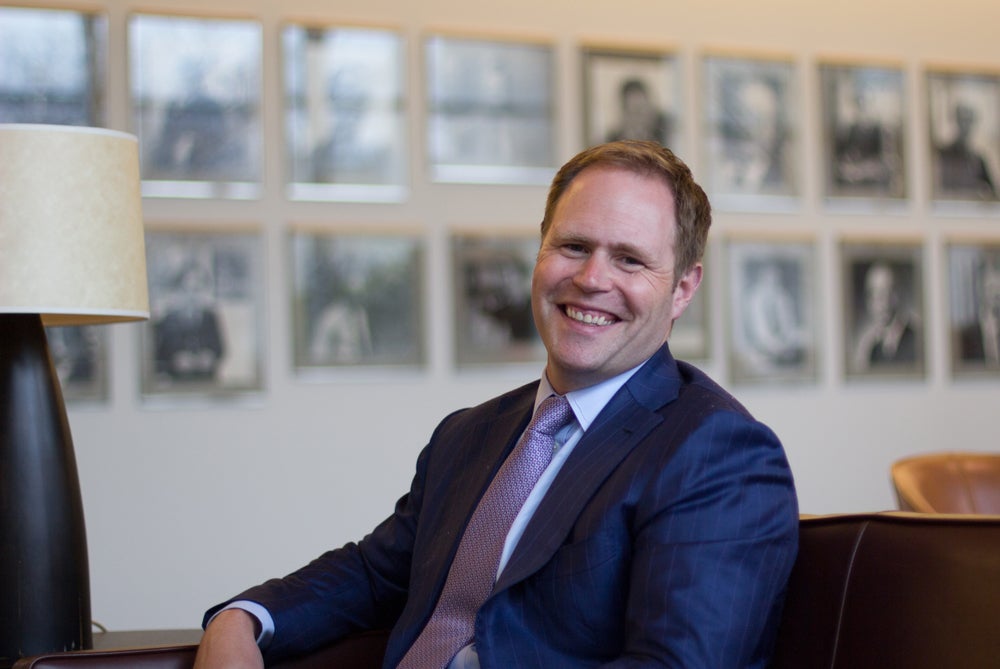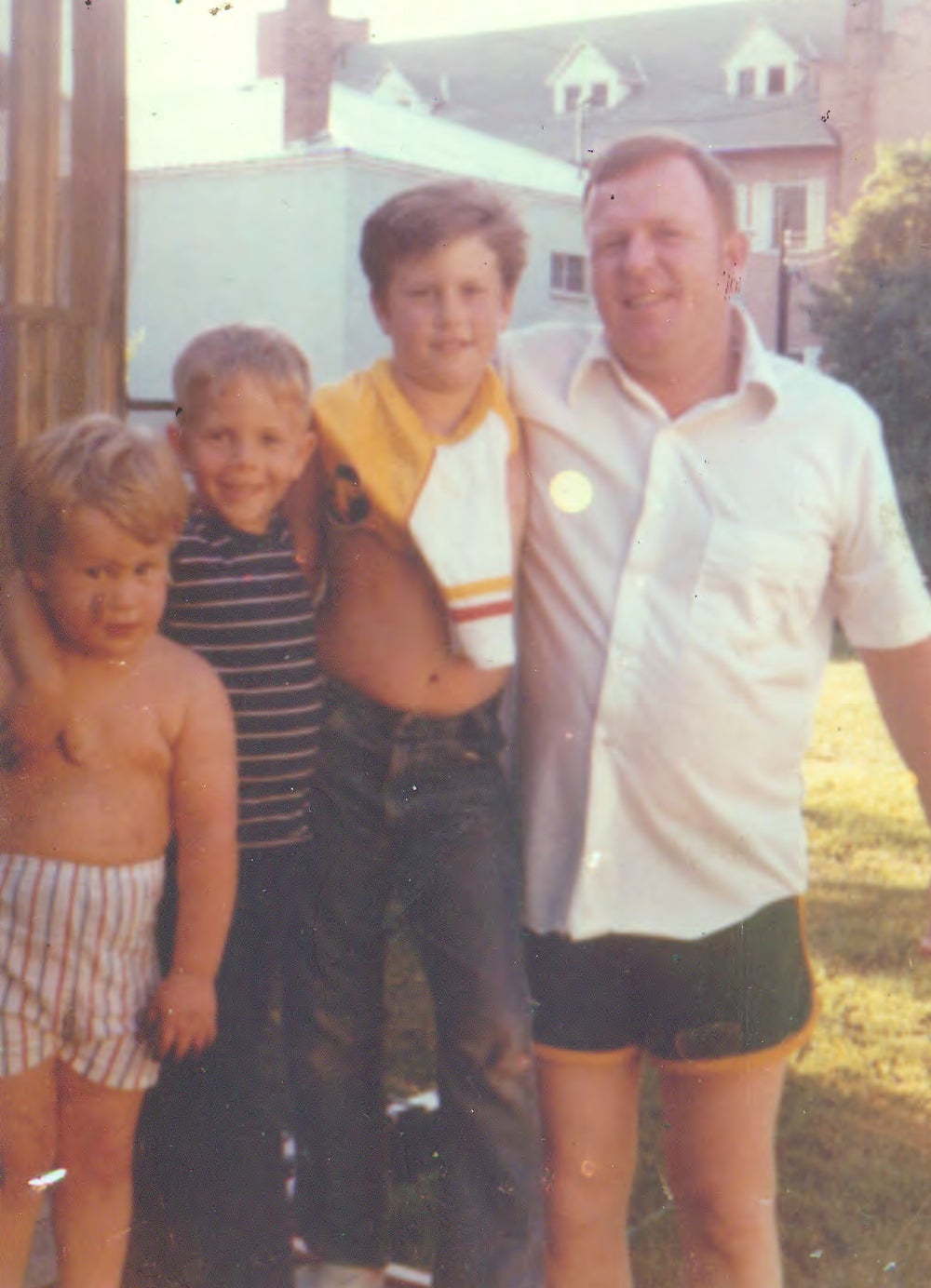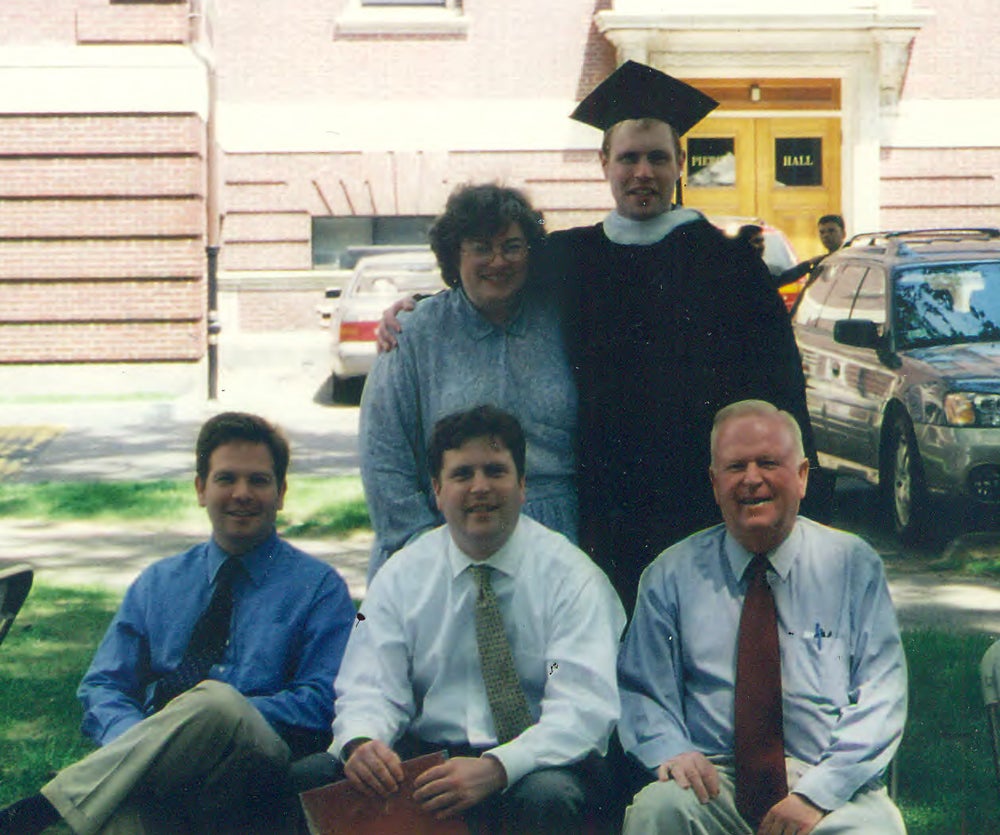
A Destiny Reimagined
By Alissa Mallinson
Among other things, Cameron MacDougall ’01 is a measured man. He rises daily at 5am and places a high value on preparedness.
Managing Director of Fortress Investment Group and General Counsel for Fortress Private Equity, MacDougall’s first introduction to law and business was at 11 years old as he negotiated the price of his waterbed with a stranger in his hometown of Spokane, Washington.
His parents had put him in charge of the family yard sale, and everything had to go. The customer wanted to pay $14 for the waterbed, but MacDougall was asking $18.
Some people may argue that it’s only $4, but to MacDougall, whose parents had moved to Seattle ahead of him and his brother in an effort to find jobs quickly, $4 was everything.
“I was haggling because I needed the extra $4,” he says. “So I was going to stand my ground and try to get it. There’s nothing like necessity and a dire circumstance to teach you how to negotiate.”

MacDougall’s parents (his dad was also a lawyer) owned a small real estate business in Spokane that took a catastrophic hit in the early 1980s when interest rates skyrocketed. Their business went bankrupt and MacDougall’s family lost everything. He found himself alone with his brother in a rented apartment that they were emptying as quickly as possible.
He sold the waterbed for $17, as well as the rest of his family’s belongings.
“We made our way to Seattle, and at that point we were just literally moving from place to place, basically itinerant,” says MacDougall. “My dad got a job buying oil and gas leases in Texas, so we eventually went down to Texas, while my mother stayed in Seattle to send us money to live on.”
His father’s six-week job in Texas lasted three years.
“We moved into a small town called Celina, Texas, and my brother and I lived in an apartment with no furniture. I had missed too much school by that point so the Texas school system wouldn’t let me into ninth grade. We had nowhere else to go, so we went to live on the oil field with my dad.”
Every day, the family hoped that today would be the day the well hit oil. Since his father owned a 2% interest in the well, that was all they needed to flip their financial fortune.
Then one day, a miracle happened. The well hit oil, 9,600 barrels a day, according to MacDougall. They rejoiced at their good luck. But the owner of the well thought he could tap more oil if he capped the well and drilled a different way.
“He did that, despite us begging him not to,” says MacDougall, “and we lost the well. So all of this change of fortune didn’t work out. In fact, we were in worse shape than before – now we really had nothing. Meanwhile, the oil field became a dangerous environment. We feared for our lives because many of the people who worked there threatened to kill us if they didn’t get paid.”
MacDougall, his brother, and his father all jumped into his brother’s green 1978 Volkswagen Rabbit, with pleather seats, and took off for Seattle with the shirts on their backs. By then it was the early 1990s and interest rates had dropped again. When they reached Seattle, MacDougall’s parents began rebuilding their business and MacDougall was able to talk his way back into school.
“I was 14 years old and I decided that I was going to find a way to be successful,” he remembers. “I was a very serious student and had to work full time to help the family make ends meet, so I convinced a guy to let me wash dishes. I washed dishes and worked as a line cook at a place called Cousin’s for four years and was fortunate enough to get accepted to Yale for my undergraduate studies.”
A history major at Yale University, MacDougall was just as measured and studious as he had been in high school. Instead of attending parties on Saturday nights like many of his peers, MacDougall spent his Saturday evenings at the library. Instead of sneaking in a few extra hours of sleep on exam day, he woke up early to continue preparing.
“While I didn’t have the financial starting point that others had, by virtue of understanding the hardships that I had worked through, I prepared, and I realized that there is no greater richness than preparedness. For me, academics were a great equalizer, because no matter how little money I had, I could go into a test and know that I could perform well because I had prepared.”

His preparedness and unflappable work ethic, in part, helped lead the way to his enrollment at Harvard Law School, where, in 2001, he earned his JD. After graduation, he worked as an associate at Cravath, Swaine, and Moore. But eventually he started to seek out more business-focused opportunities.
“For me, working as a general counsel of a business suits my personality better. I like the plain-speaking nature of business. Some of the smartest people I’ve ever met are incredibly plain-speaking – because they’re experts at what they do, and they clearly know what they want.”
When most people hear MacDougall talk about his childhood, they are stunned. Humble and kind, wearing an elegant suit and serving as a trusted managing director and general counsel of a large investment firm in New York City, MacDougall explains, “That’s why Harvard Law School means so much to me. You sleep on a floor for a few years, and having the opportunity to walk into a business with a Harvard Law School degree – it matters. Nothing is more powerful than an institution like Harvard Law School that allows you to reimagine your destiny.”
Transforming hardship into hard work and hopelessness into ambition and success, MacDougall has unquestionably reimagined his destiny. Yet what’s most striking about him is not his calm and collected demeanor nor his thoughtful pragmatism. It’s the warmth and gratitude he bestows on everyone he meets.
“I’m generally a very happy person, because I’m just lucky to be here,” he says. “It’s a real pleasure and an honor to be able to live and work in the areas that I do. So, I think that if you’re happy, then you’re optimistic; if you’re optimistic, then you work harder, and you’re probably grateful too; and that positions you for success.”